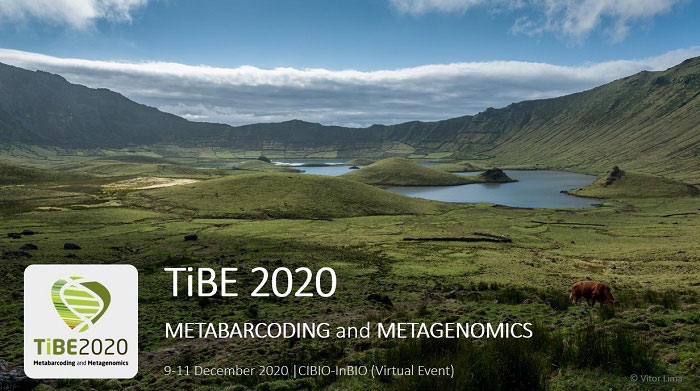TiBE2020 Metabarcoding and Metagenomics
Home | Events | LifeWatch Portugal | TiBE2020 Metabarcoding and Metagenomics

Online, 9-11 December 2020. The tenth edition of the Trends in Biodiversity and Evolution (TiBE) conference will be virtual this year and focus on Metabarcoding and Metagenomics. The meeting, held over three afternoons, will discuss exciting developments associated with the advent of ever more powerful DNA sequencing technologies, which are opening possibilities to explore the living world in ways that were unimaginable just a decade ago.
This annual event is organised by CIBIO-InBIO, the Research Centre in Biodiversity and Genetic Resources, connected through PORBIOTA with LifeWatch Portugal. It brings together senior researchers, post-graduate and graduate students working in the fields of biodiversity and evolutionary biology, to discuss cutting-edge findings in topics related to metabarcoding and metagenomic techniques, and their application in ecological and environmental research. The Conference is jointly organised by the CompBio and ApplEcol research groups. It will be hosted on an online platform that will facilitate networking opportunities and allow poster presentations. The program, including both plenary and short presentations from selected abstracts, is divided into three sessions:
• Molecular surveys of biodiversity and invasive species
• Next generation biomonitoring of aquatic and terrestrial ecosystems
• Understanding species in interactions in complex ecosystems.
Abstracts are invited either as 15-minute oral presentations, or as 2-minute poster videos. Please note that only registered participants will be accepted as presenting authors. The abstract submission deadline is 27 October, 2020.